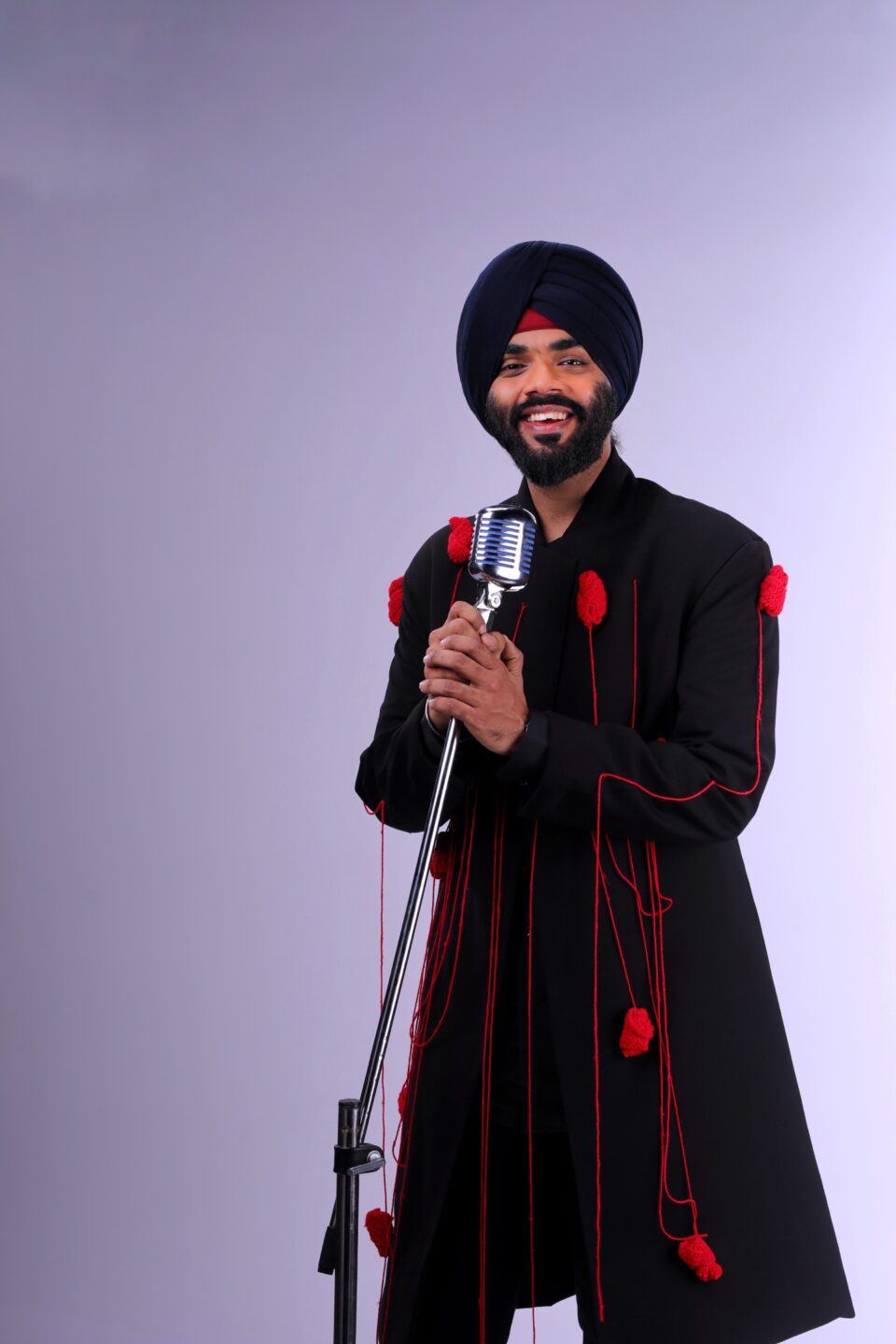Punjabi Pop Artist Burrah on ‘Udja’ for Coke Studio Bharat, Grammy Dreams and More
In addition to working with the likes of OAFF and Savera, New Delhi’s Jasdeep Singh has also been a collaborator with producers such as Gurbax, Hashbass and Dropped Out
While interviewing Punjabi pop singer and songwriter Burrah aka Jasdeep Singh, an unmissable background object is a big neon sign crafted out of his artist logo. “My dad got it made. He really likes my logo so he just one day went and got me a neon sign,” Burrah says over a video call.
There’s one here in his bedroom, another in his studio and even bumper stickers on their family car. Friends have sent him photos of the car when they spot it in traffic. He says, “I’m like, ‘That’s a breach of privacy, but okay.’”
The other side of Singh, a twenty-something New Delhi-bred artist known as Burrah, very intentionally public, though. Releasing music since 2019, songs like “No Love” and “About Time” made him the moody Punjabi pop and hip-hop voice. When he teamed with Bengaluru-bred producer Gurbax on “Sajna Slapper” in 2020, however, there was a palpable sense of the singer’s true range. He went on to sing on “Hausla” with rapper-producer pair Yashraj and Dropped Out in 2020 and also appeared on “Mere Warga” from Gurbax’s raucous 2022 album Rebirth.
Among his most recent and memorable stage appearances came performing with bassist-beatsmith Hashbass at Lollapalooza India in January, but Burrah was just warming up for the year. Last month, he was singing “Udja,” made by producer OAFF aka Kabeer Kathpalia and composer-singer Savera Mehta with singer-songwriter Jasleen Royal for Coke Studio Bharat. At 46 million views on YouTube, Burrah’s saccharine, sublime voice introduces listeners to “Udja,” which arguably shows a whole new generational side to Coke Studio Bharat.
Burrah says he’d come back from a Vipassana meditation camp when he got a call from singer-songwriter Ankur Tewari’s team, since Tewari was helming things creatively at Coke Studio Bharat. “I was in that headspace where I was feeling emotional, like I want to take flight,” Burrah recounts about the lyrics he wrote for “Udja.” The clean-slate sort of mindspace led him to think about the gusto and enthusiasm he wanted to bring to the project. Originally intended to be a lyricist on the song, OAFF and Savera then asked Burrah to take on vocal duties as well. “I went to buy an Activa [scooter] but they gave me a BMW X5,” Burrah says with a laugh.
Collaborations have clearly been key for Burrah and he says a lot of the process – as a producer, songwriter or singer – “stumbling upon ideas.” Whether it’s receiving praise from his “Udja” collaborators or someone like New Delhi’s Sez On The Beat telling him he’s got a great voice texture or a mind for composing, Burrah’s response is a bit modest. “I’m just winging it. I just have a vision and emotion that I want to express and put out,” he adds.
At the core of Burrah’s philosophies – perhaps specifically as a Punjabi artist – comes from growing up in New Delhi and not being fully steeped in the Punjabi heartland. He could never resonate with the music of Amar Singh Chamkila or the hardline gangster talk that’s made Punjabi hip-hop famous. “I was just roaming around on a Scooty, eating momos,” he says.
Burrah’s music comes from being more emotionally vulnerable, but he says this while acknowledging that there are more serious matters like the Sikh genocide in India in the Eighties that he wishes to address in the future. He wants to liberate the Punjabi music community from haumai, which translates to ego.
Vulnerability and catharsis is at the center of “Bliss,” one of his most recent tracks out last year. Burrah gets a lot of texts from people about how it helped them through their darker thoughts. There are more singles coming up in 2023 and possibly an EP.
The very public side, as Burrah, wants to go global soon enough. He wants to become the first Punjabi artist to win a Grammy and write a Punjabi song that becomes an anthem for football body FIFA. “If I’m part of that process too, that’s great too. I truly believe it’s possible. I’m going to work my ass off to do that.”






